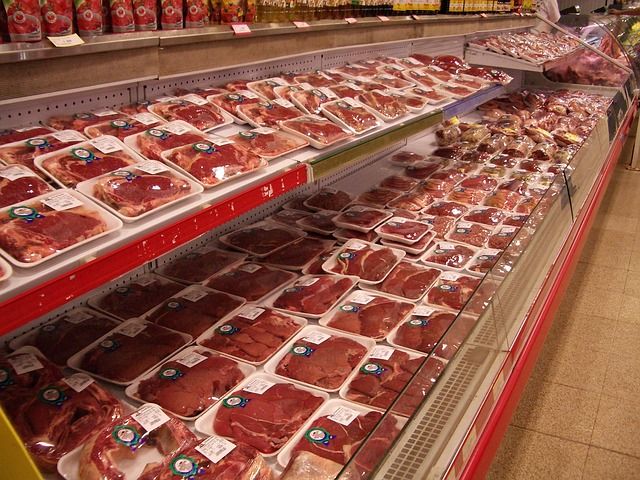The new beef export policy of Argentina has been announced, and the export restrictions to China have been technically liberalized, and the policy will continue until 2023. For more information on export to China, please call SINOLOBEN, service Email: sinoloben@sloben.com.

Through Resolution 301amp 2021, the export beef
from the slaughtering of Category D and E cows (mainly sold in China)
and bulls, and the resulting products will all be released, and the
above categories are not subject to export restrictions. It
also keeps a list of 63 meat processing plants that received export
quotas last year, requiring them to submit a meat export application
(DJEC) every time they want to export meat.
On
January 3, 2022, the Argentine government formally adopted decree No.
911 Universe 2021, announcing this year's new beef export plan, and they
also issued two resolutions in this regard. All
this happened after the expiration of export restrictions imposed by
the government since May 2021, with the aim of continuing to lower the
price of meat in Argentina.
In article
1 of the Act, the final and / or suspension of export of the following
fresh, frozen or frozen beef pieces shipped abroad is suspended until
December 31, 2023, beef slices suspended for export include: whole beef,
half beef, the first 1/4 parts with bones (including incomplete beef
slices), the back 1/4 with bones (including incomplete beef slices),
incomplete semi-beef with bones, beef ribs with or without bones.
On
the other hand, seven kinds of barbecue pieces in strong demand in
Argentina's domestic market, including fresh, frozen or frozen products,
will also be banned from export until the end of 2023. They
are: bony steak (asado), abdominal double-layer meat (matambre), beef
tenderloin (Vacation í o), tenderloin (cuadrada), cartilage (falda),
boneless steak (tapa de asado) and foreshoulder boneless meat (paleta)
and so on.
In considering this
measure, it was noted that "there is a need to develop a public policy
for the meat chain to increase production, livestock stocks and average
slaughtering weight, to provide predictability for producers and to
increase exports. In addition, existing measures help to strike a balance between the Argentine market and the export of meat products.
In
May last year, the Argentine government began to restrict beef exports
in order to lower the price of meat to consumers, a goal that has not
yet been achieved. Prices at butcher
counters in the federal capital and greater Buenos Aires rose more than
10 per cent in November last year, according to the Argentine Beef
Promotion Association (IPCVA).
Another
decision considered in the decree is to empower the Ministry of
Agriculture to determine the supplementary regulations necessary to
implement the measure. Similarly, the
above-mentioned ministries have the right to make appropriate exceptions
to the guidelines in the article prohibiting the export of barbecue
cuttings.
In addition, the measure
takes into account exports destined for a special customs area provided
for in Law No. 19640 and / or exports destined for a general customs
area from that special customs area.
In
turn, the Ministry of Agriculture published resolutions 301 and 302 in
the official Gazette to implement President Alberto Fern á ndez's decree
No. 911 and decision No. 10 on the production development mix.
Through
Resolution 301amp 2021, the export beef from the slaughtering of
Category D and E cows (mainly sold in China) and bulls, and the
resulting products will all be released, and the above categories are
not subject to export restrictions. It
also keeps a list of 63 meat processing plants that received export
quotas last year, requiring them to submit a meat export application
(DJEC) every time they want to export meat.
In
the resolution, it was emphasized that "the DJEC of products under
articles 2, 3 and 4 of this measure must consist entirely of meat pieces
corresponding to these categories. In order to be able to declare tonnage, containers containing cut meat must be stored at the time of DJEC submission. " This means that meat normally shipped to the Chinese market will be released, subject to the approval of DJEC officials.
To
this end, through the powers conferred by presidential decree, the
Department of Agriculture issued Resolution 302 to 21, which opened the
registration of beef exports to authorized slaughtering or processing
plants that were not included in the regulations already in force in
June 2021, and producer groups that intend to export beef by 2022.
In
turn, the resolution and the Ministry of production and Development
Resolution 10ther 21 stipulated that beef used for retail trade must
leave the refrigerator in units of no more than 32 kilograms. According
to the Deputy Minister of Animal Husbandry of the Ministry of
Agriculture this measure is a response to the request of trade union
entities representing producers. In order to meet these requirements, a maximum period of six months is granted.
Julian
Dominguez, deputy minister of animal husbandry, said in a statement
that the measures announced by the government in the official bulletin
had been agreed with the production entities and the meat packing
industry and were aimed at providing predictability and confidence to
Argentine livestock. Ensuring Argentine production, exports and
consumption is based on technical analysis of the industry.
热品推荐